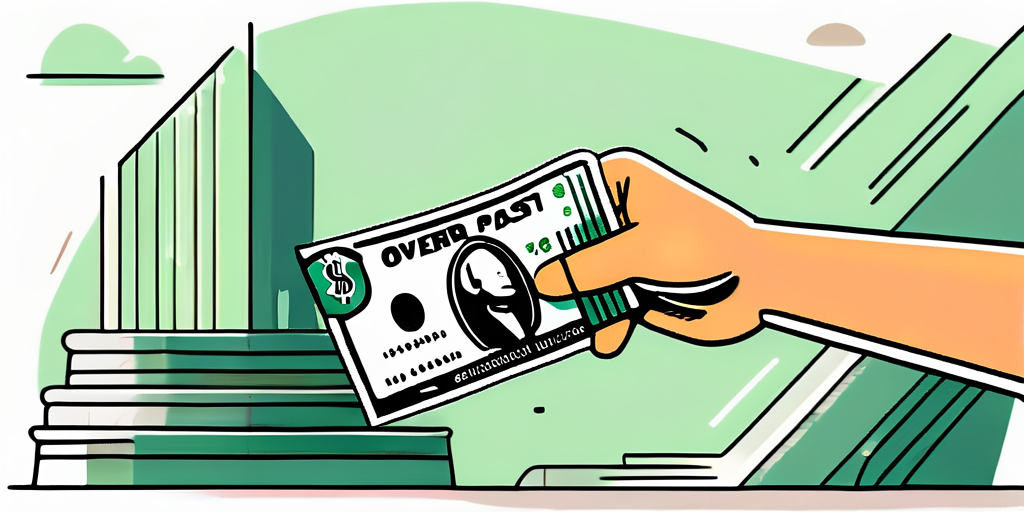How Much Do Airlines Compensate for Overbooking?
Discover how much airlines compensate for overbooking. Explore regulations and what to expect if you're affected by flight overbooking.
In the fast-paced world of air travel, overbooking is a common occurrence. Airlines often sell more tickets than the available seats on a flight, relying on statistical analysis to predict how many passengers are likely to miss their flights. Overbooking allows airlines to maximize their revenue and minimize losses from no-shows. However, when flights are oversold, passengers can be bumped off their intended flights, leading to inconvenience and frustration. To address these challenges, airlines have implemented compensation policies to provide relief to affected travelers.
Understanding Overbooking in the Airline Industry
Overbooking is a strategic practice employed by airlines to mitigate the impact of no-shows and cancellations. The concept hinges on the assumption that a certain number of passengers will not show up for their flights. By selling more tickets than available seats, airlines aim to maximize their revenue. While this practice helps airlines maintain profitability, it can result in inconvenience and disruptions for passengers.

The Concept of Overbooking
Overbooking occurs when airlines sell more tickets than the total number of seats available on a particular flight. The assumption behind overbooking is that a certain percentage of passengers will either cancel their reservations or simply not show up. By overselling flights, airlines can fill seats that would otherwise go empty, ensuring high load factors and maximizing their revenue potential.
It's important to note that overbooking is a delicate balance for airlines. While it can be a profitable strategy, it also carries risks. If more passengers show up than expected, airlines may have to resort to offering compensation, upgrades, or alternative travel arrangements to accommodate everyone. This can lead to increased operational costs and potential backlash from customers who may feel inconvenienced by the situation.
Why Airlines Overbook Flights
There are several reasons why airlines engage in the practice of overbooking. Firstly, airlines face the challenge of no-shows and cancellations, which can lead to empty seats. By overbooking, airlines can increase the chances of filling these seats and avoid revenue losses. Additionally, overbooking allows airlines to maintain flexibility in their schedules, accommodating last-minute reservations and changes without having to disappoint potential passengers.
Moreover, overbooking also serves as a revenue management strategy for airlines. By carefully analyzing booking patterns and historical data, airlines can predict the likelihood of no-shows on specific routes or flights. This data-driven approach enables airlines to overbook flights selectively, focusing on routes with higher probabilities of empty seats. As a result, airlines can optimize their revenue streams while minimizing the impact on passengers.
The Legalities of Overbooking
Despite the benefits of overbooking, airlines must comply with legal regulations to protect the rights of passengers. International laws and country-specific regulations impose certain obligations on airlines when dealing with overbooked flights. These regulations aim to ensure fair treatment of passengers and provide appropriate compensation in cases of denied boarding.
When an airline decides to overbook a flight, they are essentially selling more tickets than there are available seats on the aircraft. This practice is common in the industry to account for no-show passengers and maximize revenue. However, overbooking can lead to situations where passengers with confirmed reservations are unable to board the flight, causing inconvenience and potential financial loss.
International Laws on Overbooking
Various international treaties govern overbooking and related compensation. The Montreal Convention of 1999, for example, sets out the rights of passengers in cases of denied boarding. According to the convention, passengers who hold confirmed reservations but are involuntarily denied boarding due to overbooking are entitled to compensation.
Additionally, the Warsaw Convention of 1929, although an older treaty, also addresses the liability of airlines in cases of overbooking and denied boarding. These international agreements serve as a framework to ensure that passengers are not left stranded or disadvantaged due to overbooking practices.
US Regulations on Overbooking
In the United States, the Department of Transportation (DOT) has set specific rules and regulations to protect passengers' rights. The DOT mandates that airlines must seek volunteers to give up their seats before involuntarily denying passengers boarding. Passengers who are involuntarily bumped from their flights are entitled to compensation based on certain criteria, including the length of the delay caused by the overbooking.
Furthermore, the Airline Passenger Bill of Rights, introduced in 2009, outlines additional protections for passengers, including compensation for delayed or canceled flights. These regulations aim to balance the interests of airlines with the rights of passengers, ensuring a fair and transparent process in cases of overbooking.
Compensation Policies of Major Airlines
Each airline has its own compensation policies in place to deal with overbooked flights. The policies outline the amount of compensation passengers can expect to receive in case of involuntary denied boarding. The compensation amounts can vary depending on the airline, flight duration, and other factors.
It's important for passengers to familiarize themselves with the compensation policies of the airlines they are flying with to understand their rights in case of overbooking situations. Being aware of the potential compensation they may be entitled to can help passengers make informed decisions when faced with the possibility of being bumped from a flight.
Compensation Policies of US Airlines
US airlines typically follow the guidelines set by the Department of Transportation regarding compensation for denied boarding. Passengers who are bumped from their flights can receive compensation ranging from a few hundred dollars to several thousand dollars, depending on various factors such as the length of delay and the ticket price.
In addition to monetary compensation, US airlines may also offer alternative arrangements such as rebooking on a different flight, travel vouchers, or other amenities to mitigate the inconvenience caused by denied boarding situations. These additional offerings can vary by airline and specific circumstances.
Compensation Policies of European Airlines
European airlines fall under the jurisdiction of Regulation (EC) No 261/2004, which provides clear guidelines on passenger rights in the European Union. In cases of denied boarding due to overbooking, European airlines must compensate passengers according to specific criteria. Compensation amounts can range from €250 to €600, depending on the flight distance and delay caused by the overbooking.
Passengers flying with European airlines should be aware of their rights outlined in Regulation (EC) No 261/2004 to ensure they receive the compensation they are entitled to in the event of denied boarding. Understanding the criteria used to determine compensation amounts can empower passengers to advocate for themselves and seek appropriate redress when facing overbooking issues.
Factors Influencing Compensation Amounts
The compensation amount for denied boarding due to overbooking is influenced by several factors. Airlines take into account various criteria to determine the appropriate compensation amounts, ensuring that passengers are adequately compensated for the inconvenience and disruption caused by being involuntarily bumped from their flights.
One important factor that airlines consider when determining compensation amounts is the specific circumstances surrounding the overbooking incident. For example, if the overbooking was a result of a last-minute aircraft change or a scheduling error on the airline's part, passengers may be entitled to higher compensation to reflect the airline's responsibility for the situation. On the other hand, if the overbooking was due to factors outside of the airline's control, such as extreme weather conditions or air traffic control issues, the compensation amount may be adjusted accordingly.
Determining Factors for Compensation
Airlines consider factors such as the length of the delay, the ticket price, and the flight distance when calculating compensation amounts for denied boarding. These factors help airlines assess the level of inconvenience and adjust compensation accordingly. Passengers who experience significant delays and incur additional expenses due to overbooking are generally entitled to higher compensation amounts.
In addition to the immediate inconvenience caused by denied boarding and flight delays, airlines also take into consideration the potential long-term impact on passengers' travel plans. For instance, if a passenger misses a connecting flight or an important event due to overbooking, the compensation amount may be increased to account for the broader implications of the disruption.
How Flight Delay Impacts Compensation
When flights are overbooked, delays are inevitable for affected passengers. The duration of the delay caused by the overbooking plays a significant role in determining the compensation amount. Passengers facing substantial delays are typically entitled to higher compensation, as the prolonged wait and potential disruption to their travel plans can significantly impact their overall experience.
Furthermore, airlines may also consider the level of service provided to passengers during the delay period when determining compensation amounts. Passengers who receive proactive communication, assistance with rebooking, and access to amenities such as food and accommodations are likely to receive lower compensation amounts compared to those who experience a lack of support and communication during the delay.
How to Claim Overbooking Compensation
Passengers who find themselves involuntarily bumped from their flights due to overbooking have the right to claim compensation. Claiming compensation requires following specific steps and meeting certain requirements, ensuring that passengers are able to assert their rights effectively.

Steps to Claim Compensation
To claim compensation for denied boarding, passengers should first inform the airline of the situation and request appropriate compensation. It is essential to keep all relevant documentation, including the original reservation, boarding pass, and any communication with the airline regarding the overbooking incident. If the airline refuses to provide adequate compensation, passengers may need to escalate the matter by filing a formal complaint with the relevant authority or seeking legal assistance.
Dealing with Denied Claims
In some cases, airlines may deny compensation claims for various reasons. If a claim is denied, passengers can seek assistance from consumer protection agencies, ombudsman services, or legal professionals who specialize in aviation law. These avenues ensure that passengers have recourse and can pursue their compensation rights effectively.
Conclusion
In conclusion, overbooking is a practice employed by airlines to maximize revenue and minimize losses caused by no-shows and cancellations. However, overbooked flights can result in the inconvenience of passengers being denied boarding. To address these situations, airlines have implemented compensation policies that provide relief to affected travelers. Understanding the legalities and compensation amounts associated with overbooking is crucial for passengers to assert their rights effectively and claim appropriate compensation when necessary.

Ready to Claim Your Compensation?
If you've been bumped off a flight due to overbooking, ClaimCompass is here to help. We specialize in securing up to 600€ in compensation for inconvenienced air passengers. Our expertise in EU Regulation 261/2004 and our commitment to air passenger rights in Europe means we handle everything from submitting your claim to taking the airline to court if necessary. Use our compensation calculator to check your eligibility for free and find out how much you could be owed. Remember, there's no cost to you unless we successfully claim your compensation, and then we only keep a 35% commission (incl. VAT). Don't let the airlines keep what you're entitled to—submit a claim with ClaimCompass today and let us fight for your rights.
